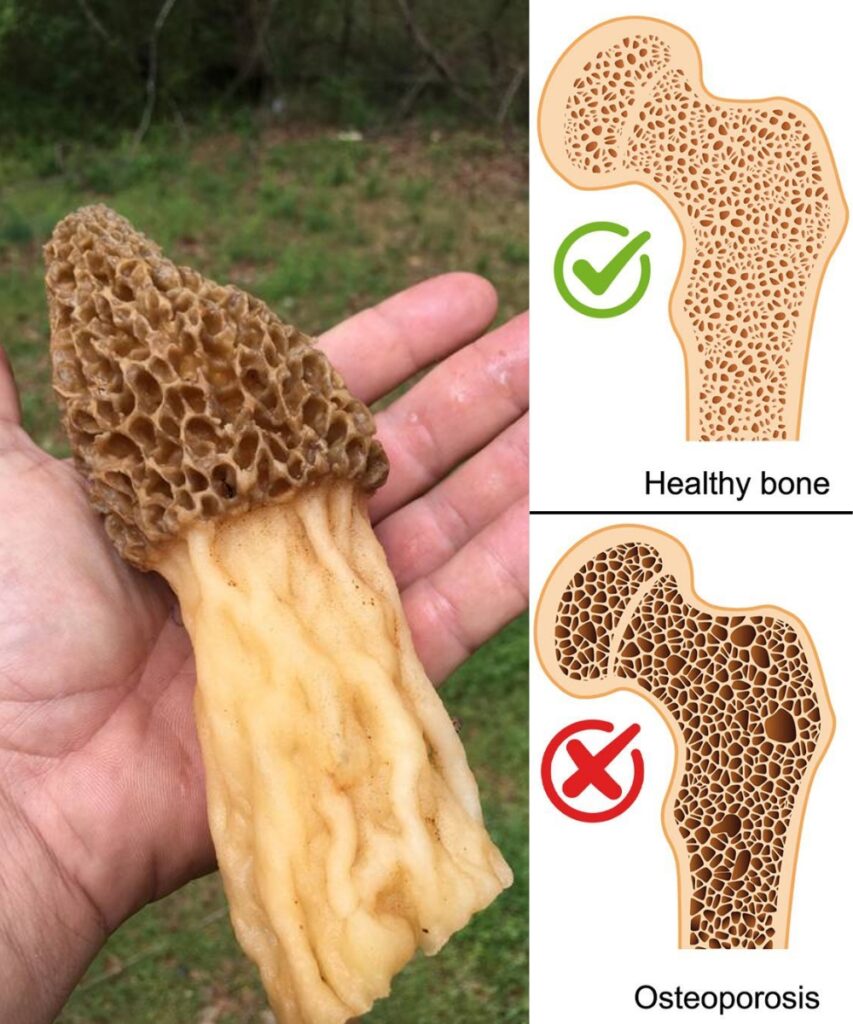Morel mushrooms are more than a gourmet treat—they’re nutrient-packed fungi with compelling health advantages. This article explores the key morel mushroom benefits, including immune support, gut health, and powerful antioxidants backed by both tradition and science.

What Is Morel Mushroom and Why It Matters
Morels (Morchella spp.) are rare wild mushrooms prized for their honeycomb caps, nutty flavor, and meaty texture. Unlike most cultivated mushrooms, morels are foraged only during spring, making them highly sought after by chefs and food enthusiasts. Beyond taste, these mushrooms are prized for their nutritional density, flavor complexity, and long-standing use in traditional cuisines and herbal practices.
1. Rich Nutritional Profile and Antioxidants
True morels deliver a remarkable nutrient punch. A 100 g serving of fresh morels contains significant amounts of protein, fiber, iron, copper, manganese, zinc, phosphorus, B vitamins, and vitamin D (especially vitamin D₂ after sunlight exposure). Their high concentration of antioxidants and phenolic compounds helps neutralize oxidative stress and support cellular health
2. Immune & Anti-Inflammatory Support
Morel mushroom benefits include immune modulation and anti-inflammatory effects. Polysaccharides and phenolics in morels are shown in vitro and animal models to enhance immune cell activity and reduce inflammatory markers. In traditional herbal medicine, morels are used to support resistance to infection and inflammation.
3. Supports Gut Microbiome & Weight Control
Recent animal research shows morel intake can beneficially alter gut bacterial communities and boost short-chain fatty acid (SCFA) production—metabolites linked to improved gut barrier function and reduced body weight. These findings suggest that morel mushrooms could function as prebiotic food, supporting digestive health and metabolic balance.
4. Liver Protection & Cardiovascular Health
Compounds in morels—such as antioxidants and beta‑glucans—may help prevent lipid oxidation, support liver detox pathways, and maintain healthy cholesterol levels. In some studies, morel extracts preserved liver cell integrity and reduced markers of hepatic damage, indicating potential benefits for liver health.
5. Versatile Culinary Use & Safety Tips
Cooking is essential: raw morels contain mild toxins that must be neutralized through heat. Sautéing in butter or oil, simmering in sauces, or adding to risottos are excellent ways to highlight morels’ unique flavor.
When foraging, be mindful of false morels (like Gyromitra spp.), which can be poisonous. Only forage with expert guidance, and always cook morels thoroughly to ensure safety.
Why Morel Mushroom Benefits Make It a Superfood Worth Trying
- Immunity & inflammation: Polysaccharides and antioxidants support immune health.
- Digestive & metabolic support: Prebiotic action may improve gut microbiota and weight regulation.
- Nutrient-dense: Rich in vitamins, minerals, and protein with low calories.
- Gourmet versatility: A culinary delicacy that enhances both flavor and nutrition.
- Traditional & scientific backing: Used in folk medicine and backed by emerging research.
Morel mushroom benefits extend far beyond gastronomic allure—they offer tangible nutritional and health advantages. While more research is needed to confirm effects in humans, early findings and centuries of traditional use support morels as a functional food worth incorporating into a balanced diet.
Curious to explore more mushroom-based wellness ideas? I’d be happy to create additional guides on recipes, foraging tips, or pairing suggestions!






